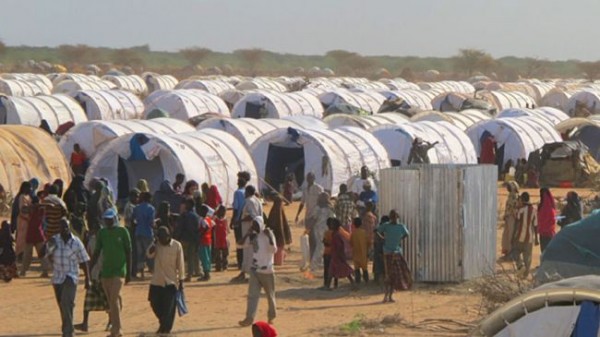Kenya seeks to voluntarily repatriate 100,000 Somalis

 Kenya has set a goal to get 100,000 Somali refugees to return home voluntarily by the end of the year, a government official said as money shortages have forced the U.N. to reduce food rations for the displaced.
Kenya has set a goal to get 100,000 Somali refugees to return home voluntarily by the end of the year, a government official said as money shortages have forced the U.N. to reduce food rations for the displaced.
Government officials have blamed refugee camps in Kenya for a rise in extremism. Following an April 2 attack by Islamic militants on Garissa University College in eastern Kenya that killed 148 people, Deputy President William Ruto gave the U.N. refugee agency three months to close the Dadaab camp where at least 300,000 Somalis live.
In an apparent softening of the government stance since that statement, the acting commissioner for refugee affairs, Harun Komen, said officials want the repatriation to be voluntary and organized.
He said most of Somalia is now peaceful due to military operations by African Union troops against the extremist group al-Shabab. According to the U.N. refugee agency, about 2,048 Somali refugees have been repatriated voluntarily since December.
Authorities say al-Shabab militants have carried out numerous attacks in Kenya since October 2011, when the country deployed its troops to Somalia to fight the militants. Al-Shabab claimed responsibility for the September 2013 attack on Nairobi’s Westgate Mall that killed 67 people and the April 2 Garissa attack.
Komen said there is criminal activity in Dadaab refugee camp, including smuggling, the harboring of extremists and gunrunning, and this is the reason nongovernmental organizations need police escorts to do their work.
Doctors without Borders evacuated 42 of its staff in May from Dadaab to the capital due to security concerns.
The World Food Program said it was being forced to reduce the size of food rations for about 500,000 refugees in the Dadaab and Kakuma camps for the second time in just over six months. The agency said it expects the cuts will continue to September unless it gets more money.
AP